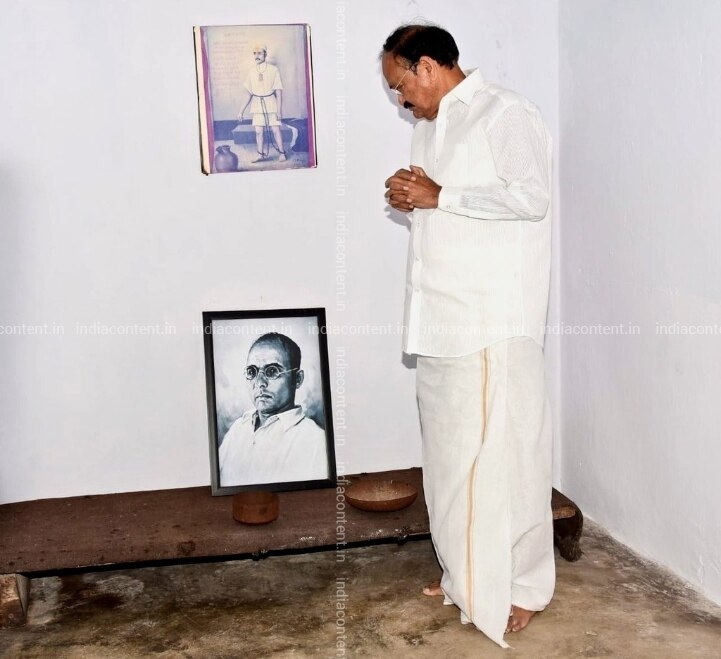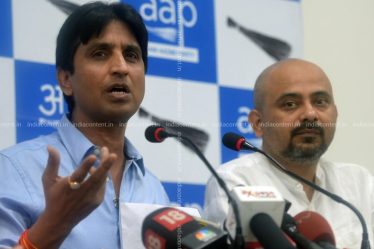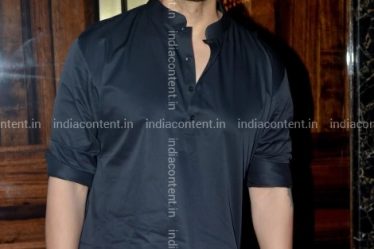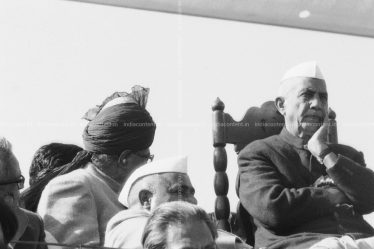
Who is Savarkar?
A well-known politician, lawyer, writer, freedom fighter and the formulator of the Hindutva philosophy Vinayak Damodar Savarkar, popularly known as Veer Savarkar was born to a Brahmin Hindu family on 28th May, 1883. He hails from the village of Bhagpur, near Nasik. He was born to father Damodarpant Savarkar and mother Radhabai whom he lost at a very tender age. He had three siblings – two brothers, Ganesh and Narayan, and a sister, Mainabai. He was a very good rhetorician and man of letters. His brother Ganesh played an instrumental role in his teenage life. For educations, he went to local Shivaji High School and later registered himself in Fergusson College in Pune where he finished his Bachelor’s degree.

In 1906, he got an offer to study law in Gray’s Inn Law College, England where he was extended fellowship and continued his studies with the help of Shyamji Krishna Varma. He took lodging in “India House” which was a student residence in North London. He influenced his associate Indian scholars and created a system by the name of “Mitra Mela” to protest against Britishers for independence of India. The victim of plague in Nasik were dealt by Mitra Mela representatives. Later, the system “Mitra Mela” was named as “Abhinav Bharat” and announced that “India must be independent”. Due to the engagement in India’s freedom movement, the British Government revoked Veer Savarkar’s graduation degree. Britishers also outlawed a book “The Indian War of Independence 1857” on India’s protest for freedom written by him.
Why Bharat Ratna for Savarkar?
While the recommendation to bestow Veer Savarkar has been proposed by Union Home Minister and BJP President Amit Shah in Maharashtra BJP manifesto, the opposition parties are considering it as an insult to the memory of the “Father of the Nation” Mahatma Gandhi who was assassinated in the conspiracy done by Savarkar and his teammates.
One day in October, 1906, Mohandas Karamchand Gandhi and Veer Savarkar met at India House in London. Savarkar was frying prawns and invited Gandhiji to have food with them but Gandhiji refused. Savarkar initiated the discussion on politics. Gandhiji neither entertained his proposition for political ideology nor his invitation for the food. Savarkar retaliated that if Gandhiji could not have prawns with him, then how was he going to work with him? This departed both of them till end.
Congress belittles the BJP’s proposal to confer a nation’s highest Indian civilian award “Bharat Ratna” to Veer Savarkar as he was named in the conspiracy of assassinating Mahatma Gandhi. According to them, BJP was trying to raise betrayers as flag-waivers. D’Douza raised a concern that how Savarkar can be considered as a freedom fighter as he wrote six letters to British government revealing his wish to surrender within two weeks of landing in jail. He purported that BJP was intentionally trying to switch the attention of the people from real issues.
According to Amit Shah, those opposing conferring Bharat Ratna to Veer Savarkar are “playing with nation’s sentiments” and “committing a sin”. Later, he was acquitted with the charge of assassination of Mahatma Gandhi. The Home Minister made a statement in context with the alleged persecution to Savarkar in jail after imprisonment that there are very few people who are nationalists and very few families who became sacrificial lamb for the country. Veer Savarkar is the only person to be molested in prison and was compelled to extract coconut oil from coir. The British government had abducted their abundance many times. Savarkar and his brother spent a long duration of 12 years in prison and were not able to see each other for that long. This was the only family who was facing troubles for the freedom of their country. Savarkar donated more than a decade in secluded internment in the Andaman Island by the British during the freedom movement.
Savarkar Achievements
Savarkar had played a significant role for the independence of his country. He had become a revolutionary and polarizing figure for having Hindu nationalism in independent India. Vinayak Damodar Savarkar was eternalized through a number of Indian movies. In November, 1905, he formulated the first public bonfire of foreign clothes in Pune. He proliferated the idea of Swadeshi. He decried orthodox Hindu belief and removed cow-worship declaring it as superstitious. He also promoted atheism and sanity.
Mazi Janmathep, Kamala and The Indian War of Independence were his most important literary works during the confinement by Britishers. A book named as ‘Kale Pani’ was considered as the monstrous explanatory depicting the struggles of many Indian independence activists in the infamous cellular jail of Andaman and Nicobar islands. He also wrote a book called “Gandhi Gondhal” criticizing the Mahatma Gandhi’s politics. He also penned down several poetries like “Jayostute” and “Sagara Pran Talmalala”. He introduced many neulogies like ‘Hutatma’, ‘Digdarshak’, ‘Doordhwani’, ‘Sansad’, ‘Tanklekhan’, ‘Saptahik’, ‘Mahapaur’ and ‘Shatkar’. In the last stage of his life, he wrote an article called ‘Atmahatya Nahi Atmaarpan’ which gave an insight on fast until death. Veer Savarkar took his last breath at his own residence in Bombay on February 26, 1966. His home and other possessions have been preserved by Indian government for the public display.
There was a big contribution of Vinayak Damodar Savarkar during the freedom movement of India.
Savarkar Images on India Content
If you are looking for Savarkar pics then you must check the India Content website. You will find high images on the website. The pictures are available in three sizes—small, medium and large.
You can purchase various other content images from the https://www.indiacontent.in


